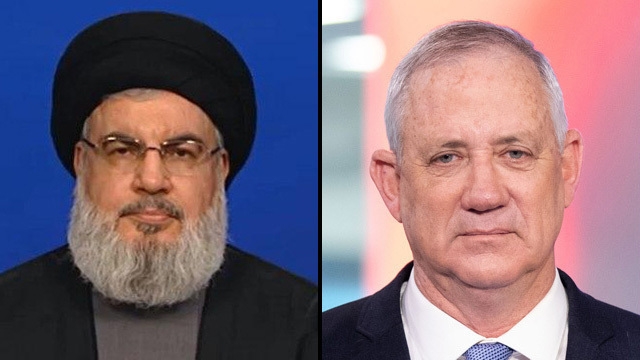Israeli Defense Minister Benny Gantz, a key figure in the nation's top military decision-making body called the "War Cabinet", has signaled a potential escalation of military operations in northern Israel. This move comes in response to persistent hostilities from Hezbollah, the Iran-backed militant group operating from Lebanon.
During a press conference late Wednesday, Gantz expressed urgency in addressing the growing threats along Israel's northern border. "The situation on Israel’s northern border demands change,” Gantz stated. He underscored the dwindling window for a diplomatic resolution, indicating that the Israel Defense Forces (IDF) might take decisive action if the situation does not improve.
🚨🇮🇱 RISK OF ISRAEL DECLARING WAR HEZBOLLAH
— Mario Nawfal (@MarioNawfal) December 28, 2023
Israeli minister Benny Gantz demanded change on the Lebanon border, hinting at the possibility of escalation with Hezbollah.
Gantz said that time is running out for a diplomatic solution on the Lebanese border, and also said if the… pic.twitter.com/4rFCgbwtRA
Hezbollah's daily attacks, including rocket fire, artillery, and drone incursions, have heightened tensions. These actions, aimed at supporting Hamas in the Gaza Strip, have raised concerns about a broader conflict in the region. Israel has responded with counterstrikes and aerial patrols over southern Lebanon, reflecting its commitment to safeguarding its citizens and sovereignty.
Recent Israeli airstrikes in southern Lebanon resulted in casualties, including the deaths of two Lebanese-Australian brothers, purportedly linked to Hezbollah. Australia is currently investigating these claims. The brothers' funerals, marked by Hezbollah flags, have drawn international attention.
Lebanese-Australian, his wife and #Hezbollah brother killed in #Israeli air strike -sources https://t.co/JIu63xmxTZ #israel #gaza #Palestine #genocide #airstrike
— Amaechi Jones (@Inojames) December 28, 2023
The conflict has also tragically impacted journalists, with three Lebanese reporters, including a Reuters photojournalist, losing their lives due to Israeli strikes. On the Israeli side, the violence has claimed the lives of four civilians and eight soldiers, prompting the evacuation of approximately 80,000 residents from northern communities.
Hezbollah's claim of targeting an Israeli naval base near Rosh HaNikra has been met with a robust Israeli defense, intercepting most of the rockets and preventing damage. Major General Ori Gordin of the IDF's Northern Command emphasized the high readiness of Israeli forces and their preparedness for various contingencies.
Foreign Affairs Minister Eli Cohen, during a visit to the northern region, conveyed a stern warning to Hezbollah's leader, Hassan Nasrallah, about the consequences of further aggression. "We will work to exhaust the political option, and if it does not work, all options are on the table in order to ensure the security of the state of Israel and return the residents of the north to their homes,” Cohen affirmed.
#Hezbollah leader Hassan Nasrallah "must understand that he’s next" — #Israel FM Eli Cohen.
— Ahmed Quraishi (@_AhmedQuraishi) December 27, 2023
"If the world and the #Lebanon govt will not act to stop the firing on the northern settlements and keep Hezbollah away from the border, the IDF will" — Defense Minister Benny Gantz.
Tensions have been further inflamed by the recent killing of a senior Iranian general in Syria, an incident Tehran attributes to Israel. Iran's threats of retaliation have heightened concerns about a broader Middle Eastern conflict.
Amid these developments, the ongoing war in Gaza continues to inflict heavy casualties and devastation. Palestinian health ministry officials report over 21,100 fatalities due to Israel's air and land operations since early October. In contrast, Israeli officials cite significant losses from Hamas's initial large-scale attack on southern Israel, which triggered the current offensive.
As the situation evolves, Israel remains steadfast in its commitment to defending its citizens and territory against external threats. The international community watches closely, hoping for a resolution that brings lasting peace and stability to the region.


